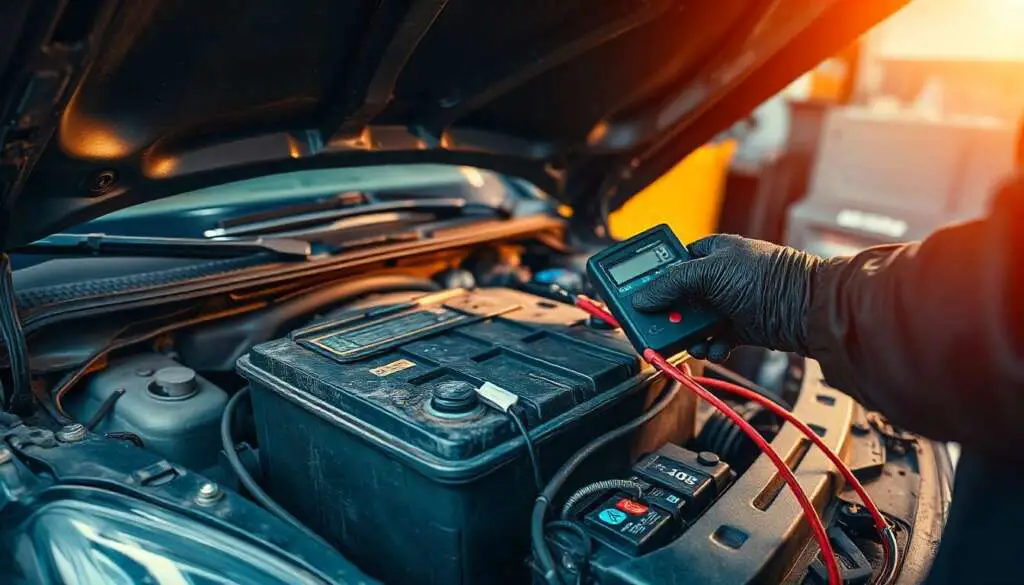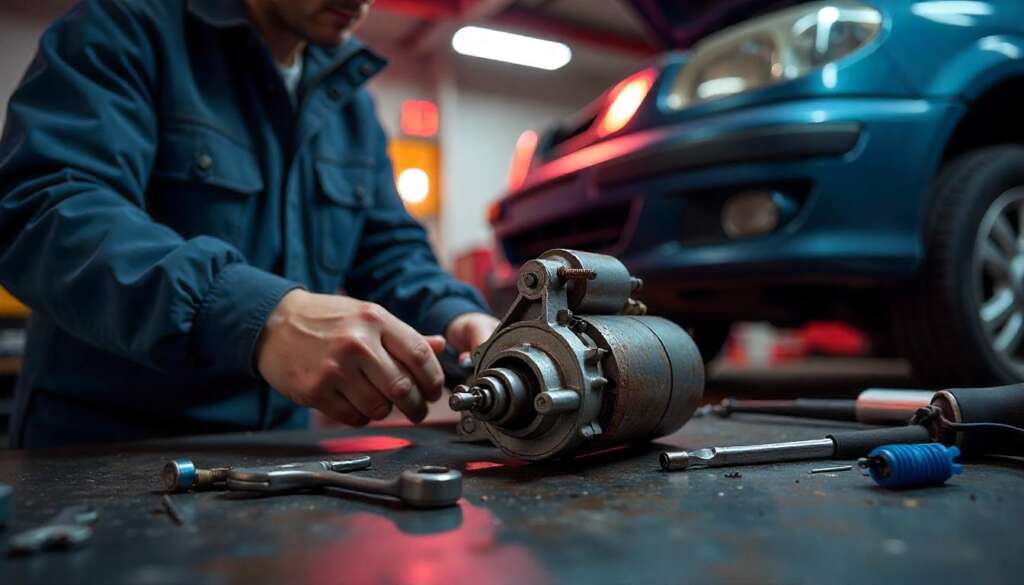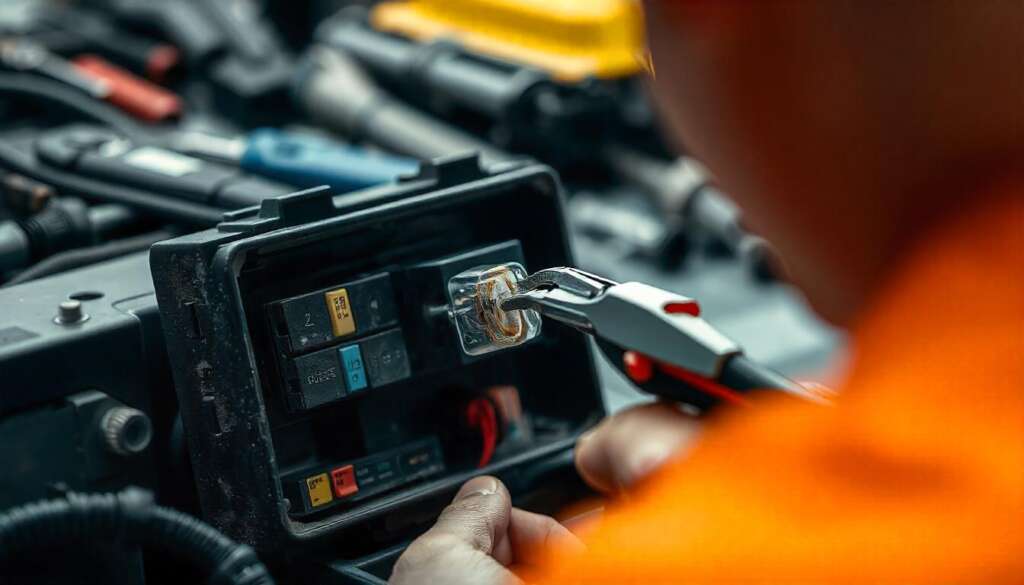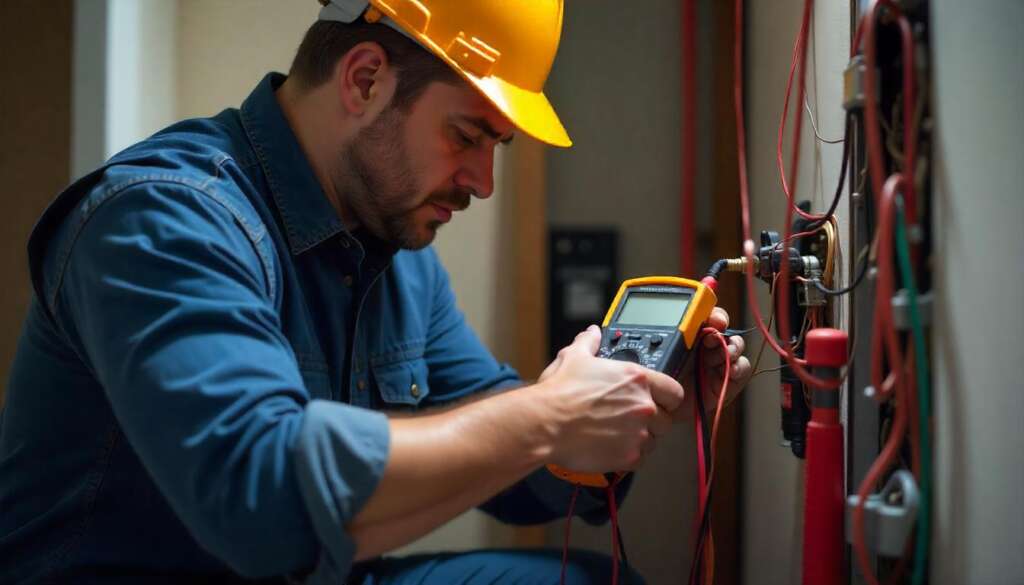Share This Article

Car electrical problems can be frustrating, especially when they cause unexpected breakdowns or interfere with your daily commute. Modern vehicles rely heavily on complex electrical systems, and understanding common issues can save you time and money. In this guide, we’ll explore the most frequent car electrical problems, their causes, and how to address them effectively.
What Are Car Electrical Problems?
Car electrical problems occur when the vehicle’s electrical system, which includes the battery, alternator, starter, and wiring, fails to function correctly. These problems can affect critical systems like lighting, ignition, or even your car’s ability to start.
Common Car Electrical Problems and Their Causes
1. Dead or Drained Battery

Symptoms:
- The car won’t start.
- Dim headlights or flickering interior lights.
Causes: - Leaving lights or accessories on overnight.
- A faulty alternator.
- Corroded battery terminals.
Fix: - Jump-start the car and check the battery voltage. If it’s below 12.6 volts, consider replacing the battery.
2. Faulty Alternator

Symptoms:
- Battery warning light illuminated on the dashboard.
- Electrical accessories failing to work.
Causes: - Worn-out alternator belts.
- Damaged internal components.
Fix: - Test the alternator output using a multimeter. If it’s below 13.5 volts, replace or repair the alternator.
3. Starter Motor Issues

Symptoms:
- Clicking noise when turning the key.
- The engine not cranking.
Causes: - A worn-out starter motor.
- Loose or damaged wiring.
Fix: - Inspect and tighten connections. Replace the starter motor if necessary.
4. Blown Fuses

Symptoms:
- Non-functioning lights, radio, or other electrical components.
Causes: - Overloaded circuits.
- Damaged wiring.
Fix: - Replace the blown fuse with one of the correct amperages.
5. Malfunctioning Lights

Symptoms:
- Dim or non-functioning headlights, brake lights, or indicators.
Causes: - Faulty bulbs or switches.
- Damaged wiring.
Fix: - Replace faulty bulbs or repair damaged wiring.
6. Electrical Wiring Problems

Symptoms:
- Intermittent issues with various electrical components.
- Burning smell from the dashboard.
Causes: - Frayed or damaged wiring.
- Rodent damage.
Fix: - Inspect and repair wiring with the help of a professional if the damage is extensive.
How to Diagnose Car Electrical Problems
- Check the Battery:
Use a multimeter to test the battery voltage. A fully charged battery should read 12.6 volts or higher. - Inspect Fuses:
Check the fuse box for blown fuses. Replace any damaged fuses with the correct amperage. - Examine Wiring:
Look for visible damage or corrosion in the wiring. Pay close attention to connectors and terminals. - Test the Alternator and Starter:
Use diagnostic tools to ensure these components are functioning correctly.
Preventing Car Electrical Problems
- Regular Maintenance: Inspect your car’s electrical system during routine check-ups.
- Clean Connections: Keep battery terminals clean and free of corrosion.
- Avoid Overloading Circuits: Don’t use high-powered accessories without upgrading the system.
- Protect Wiring: Use rodent repellents to avoid damage caused by pests.
When to Seek Professional Help
While minor issues like replacing a fuse can be handled at home, more complex problems, such as alternator or starter repairs, often require professional expertise. If you’re unsure about diagnosing or fixing a problem, consult a certified mechanic.
Conclusion
Car electrical problems can be daunting, but understanding the basics can help you diagnose and even prevent many common issues. Regular maintenance and timely repairs are key to keeping your car’s electrical system in top condition.
By staying vigilant and addressing problems early, you can avoid costly repairs and ensure a smooth driving experience. If you found this guide helpful, share it with fellow car owners to help them tackle electrical issues with confidence.


